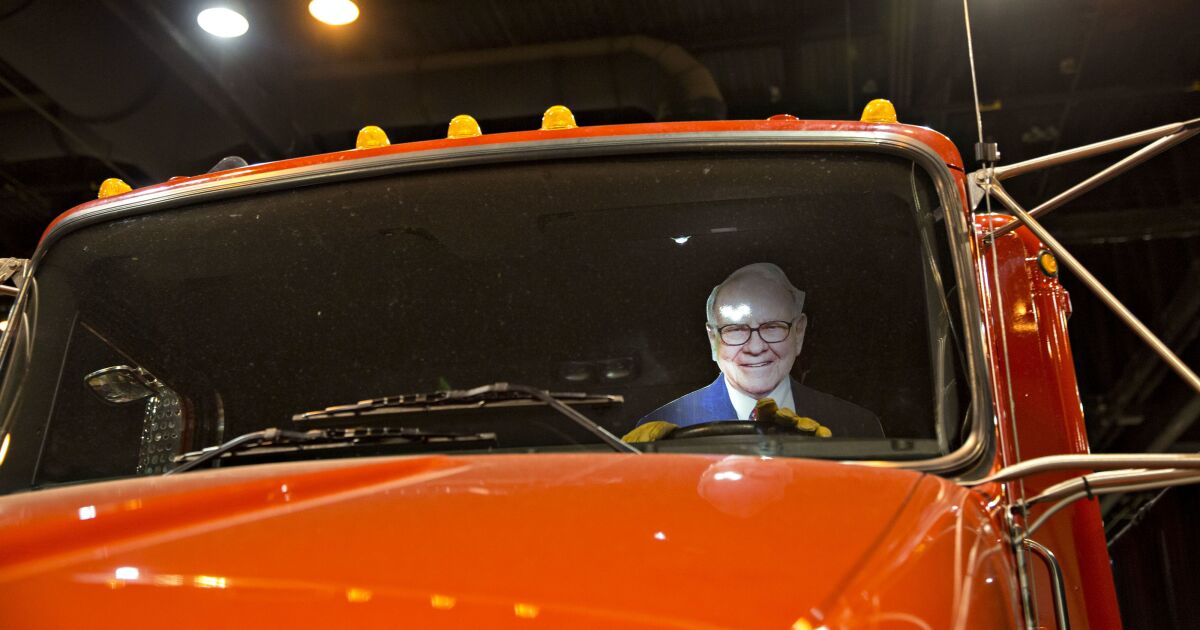Warren Buffett backs driverless trucks, now they're real: Thomas Black

Warren Buffett’s Berkshire Hathaway Inc. didn’t gain fame for investing in startups. The venerated investor has a predilection for buying time-tested businesses like an oil company, a railroad or an insurer that are bets on the steady and profitable growth of the US economy.
Buffett shied away from technology stocks for years before taking the plunge with Apple Inc., which was already woven just as deeply in the fabric of the economy as Occidental Petroleum Corp., BNSF Railway Co. or Geico. It came as no surprise that Buffett eschewed the SPAC and NFT crazes. His longtime business partner, Charlie Munger, in February railed against the “wretched excess” in both venture capital and cryptocurrencies.
This is why investors should take particular note that Pilot Co., which operates Pilot and Flying J travel centers and is owned by Berkshire Hathaway, agreed on Tuesday to take a stake in Kodiak Robotics Inc., a driverless truck startup. Pilot will get one of Kodiak’s five board seats. Although the investment amount and percentage of ownership in Kodiak weren’t disclosed, Pilot is now the largest strategic investor in the startup.
This investment is a significant validation by Berkshire Hathaway, through Pilot, that driverless trucks are on the cusp of being a reality. It may be hard and even scary to imagine an 18-wheeler with no human on board humming down the highway intermingled with passenger cars. This may happen more quickly than people think.
Kodiak is already operating trucks with a safety driver on board on routes between Dallas and six cities, including Atlanta. In a couple of years, Kodiak expects to take that safety driver out of the cab and operate completely autonomous large freight trucks. A slew of other startups are also chasing the driverless dream.
Embark Technology Inc., Aurora Innovation Inc., TuSimple Holdings Inc. and others are all testing autonomous truck technology on the highway. Aurora has said it expects to operate without a driver on board as early as next year. Aurora and Embark went public through special purpose acquisition companies while TuSimple did a tradition initial public offering. All three have performed dismally and are down more than 75% since first trading.
Kodiak, which has investors including tiremaker Bridgestone Corp. and BMW’s venture fund, is teaming up with Pilot to create an autonomous truckport in Atlanta that would offer services like fueling, inspections and maintenance for Kodiak’s driverless trucks. Pilot’s truck stops would also serve as a meeting point outside large urban areas where a driverless truck would drop off a trailer that would be picked up by a truck with a driver to navigate city traffic.
The driverless truck companies all contend their technology will make big rigs much safer for US highways. It’s a low bar considering that 159,000 people were injured in crashes involving large trucks in 2019, and 5,600 were killed in such accidents in 2021, according to the National Highway Traffic Safety Administration. The market need is also there. The American Trucking Associations estimates the US is short 80,000 truck drivers, and the shortage is concentrated in long-haul trucking that keeps drivers away from their home for days and even weeks. Those long hauls are the low-hanging fruit for autonomous trucks to pick.
If one of Buffett’s companies is taking the plunge into this new technology, don’t be surprised that in a decade or two driverless trucks will also be a mainstay of the US economy.
To contact the author of this story:
Thomas Black at tblack@bloomberg.net







